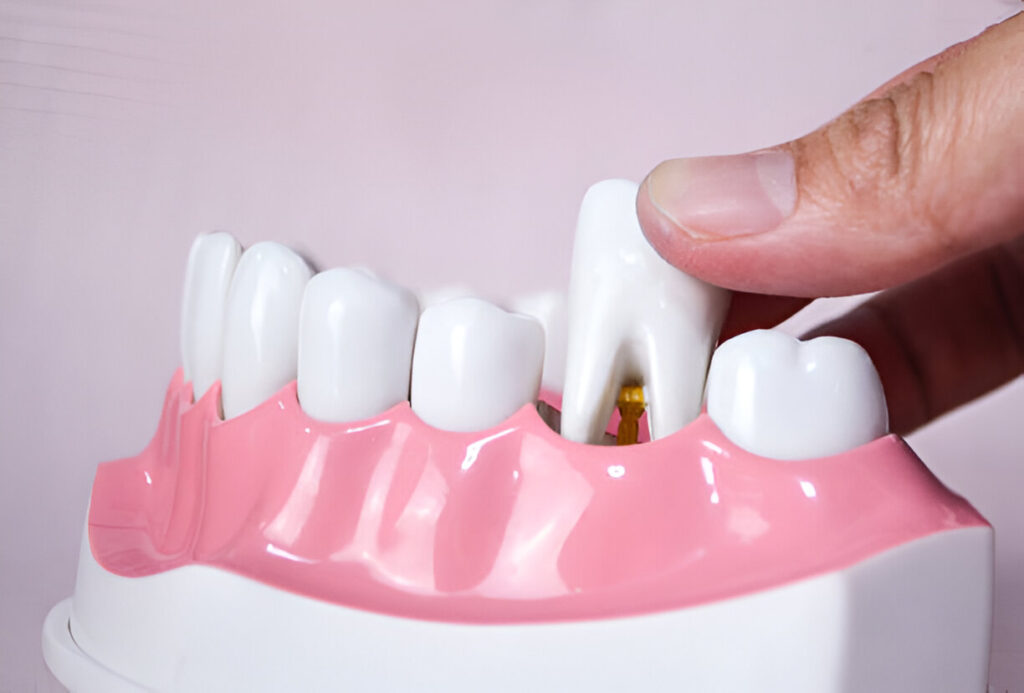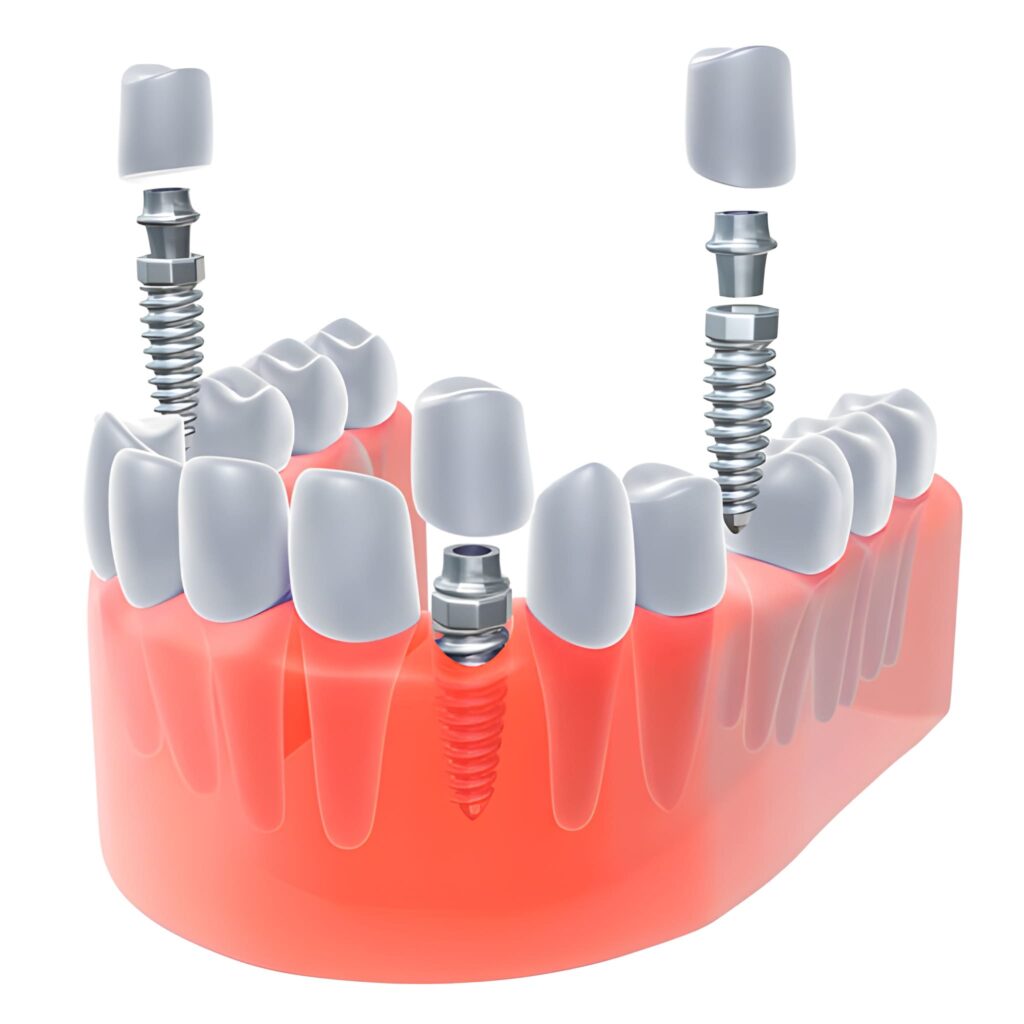Dental implants are a popular and effective solution for replacing missing or damaged teeth. They provide a natural look and feel, offering stability and durability. However, not everyone is automatically a candidate for dental implants. One of the most crucial factors in determining whether you can have implants is the health and strength of your gums. If you’re unsure, consulting an NHS dentist in Aberdeen can help assess your gum health. So, how can you know if your gums are strong enough for dental implants? Let’s take a closer look.
Why Are Strong Gums Important for Dental Implants?
Dental implants are designed to act like natural tooth roots. For them to work properly, they need a stable base. This is where your gums come in. Your gums play a key role in securing the implant in place and ensuring its long-term success. If your gums are weak, receded, or unhealthy, the implant may not integrate properly with your jawbone, which could lead to failure.
Can Dental Implants Cause Dry Mouth?
Signs That Your Gums May Not Be Strong Enough for Implants
If you are considering dental implants, there are several signs that your gums may not be strong enough to support them. Let’s take a look at the most common ones:
1. Receding Gums
Receding gums occur when the gum tissue pulls back from the teeth, exposing more of the tooth or even the root. When gums recede too much, they may no longer provide enough support for the implant. This can lead to instability and increase the risk of infection around the implant site.
2. Gum Disease
Gum disease, also known as periodontal disease, is another common issue that can impact your gum health. If you have swollen, bleeding, or inflamed gums, it may be a sign of gum disease. Untreated gum disease can weaken your gums, causing them to recede further and affecting the success of dental implants.
Does it Hurt to Get Teeth Implants?
3. Gum Sensitivity
Healthy gums are usually firm and pink. If your gums are sensitive, painful, or prone to bleeding, this may indicate that they are not strong enough to support an implant. Gum sensitivity can be caused by a variety of issues, including poor oral hygiene, gum disease, or aggressive brushing.
4. Thin Gums
Some people naturally have thin gum tissue, which may not provide adequate coverage for dental implants. Thin gums can increase the risk of gum recession and may require additional treatments, such as gum grafting, to thicken the tissue before an implant can be placed.
What To Do If Your Dental Implant Is Loose?
How Can You Assess If Your Gums Are Strong Enough?
The best way to determine if your gums are strong enough for dental implants is by visiting a dentist. A dental professional can assess the health of your gums and overall oral health. They may use several methods to evaluate your gum condition.
1. Dental Examination
Your dentist will start by performing a thorough dental examination. They will check for signs of gum disease, gum recession, or other oral health issues. Regular check-ups are essential for maintaining healthy gums and ensuring they are strong enough for implants.
2. Gum Disease Screening
If gum disease is present, it will need to be treated before dental implants can be considered. The dentist will check for symptoms such as redness, swelling, bleeding, and pockets between the gums and teeth. Early treatment of gum disease is key to restoring gum health.
3. Bone Density Assessment
In addition to evaluating your gums, your dentist will also assess your jawbone. For dental implants to succeed, there must be sufficient bone density in your jaw. If the bone is weak or insufficient, the dentist may recommend bone grafting to strengthen the area before placing the implant.
4. X-Rays and Scans
To get a clearer picture of your gum and bone health, your dentist may take X-rays or CT scans. These images help the dentist assess the structure of your gums, the condition of your jawbone, and the overall suitability for dental implants.
What are the Signs of Peri-Implantitis?
What Can You Do to Strengthen Your Gums?
If your gums are not currently strong enough for implants, there are steps you can take to improve their health. Let’s look at some ways you can strengthen your gums and improve your chances of being ready for dental implants.
1. Practice Good Oral Hygiene
Maintaining good oral hygiene is essential for gum health. Brush your teeth at least twice a day with a soft-bristled toothbrush and fluoride toothpaste. Make sure to floss daily to remove plaque and food particles that can lead to gum disease.
2. Treat Gum Disease Early
If you notice signs of gum disease, such as bleeding or swollen gums, it’s important to see your dentist as soon as possible. Early intervention can prevent further damage and improve your gum health.
3. Quit Smoking
Smoking is a major risk factor for gum disease and poor gum health. If you smoke, quitting can improve your gum health and increase the likelihood of successful dental implants. Smoking can interfere with the healing process and reduce blood flow to your gums.
4. Eat a Balanced Diet
A healthy diet is important for maintaining strong gums. Foods rich in vitamins and minerals, particularly vitamin C, can help promote gum health. Make sure to eat a variety of fruits, vegetables, and lean proteins to support your gums and overall oral health.
5. Consider Gum Grafting
If you have receding gums, gum grafting may be an option. This procedure involves taking healthy gum tissue from another part of your mouth and using it to cover the receded areas. This can help restore gum tissue and provide a better foundation for implants.
Conclusion
In conclusion, the health of your gums is critical when considering dental implants. Receding gums, gum disease, and thin or weak gum tissue can all affect the success of your implants. If you are unsure about your gum health, it’s essential to consult with a dentist who can assess your condition and recommend the best course of action. By practicing good oral hygiene, treating gum disease early, and maintaining a healthy lifestyle, you can improve your gum health and increase your chances of being ready for dental implants.
Take the Next Step Towards a Healthier Smile with Cove Dental and Implant Centre
If you’re wondering whether your gums are strong enough for dental implants, don’t wait any longer to find out. At Cove Dental and Implant Centre, we provide comprehensive consultations to assess your gum health and determine the best approach for your implant procedure. Our expert team will guide you through every step, ensuring your gums are ready for a successful implant.
Book your consultation today and take the first step toward restoring your smile with dental implants. Contact Cove Dental and Implant Centre — where your oral health is our priority!
Frequently Asked Questions
Can I get dental implants if I have receding gums?
Yes, you can still get dental implants if you have receding gums. However, the gums may need treatment, such as gum grafting, to ensure they provide enough support. A dentist will assess your gums and may recommend treatments to strengthen them before proceeding.
How do I know if I need gum grafting before implants?
If you have significant gum recession, your dentist may suggest gum grafting. This procedure helps restore gum tissue to support the implant properly. If the recession is not severe, other treatments, like improving oral hygiene, may be sufficient before proceeding with implants.
Can smoking affect my gum health for implants?
Yes, smoking can negatively impact gum health by reducing blood flow, which slows down healing and increases the risk of gum disease. If you’re considering dental implants, quitting smoking is highly recommended to improve gum health and increase the chances of implant success.
How long does it take to heal after gum grafting for implants?
Healing after gum grafting can take several weeks to months, depending on the extent of the procedure. Typically, the grafted tissue needs time to integrate and heal properly before implants can be placed. Your dentist will provide specific post-treatment care instructions for optimal recovery.
What can I do if my gums are not strong enough for implants?
If your gums are not strong enough, your dentist may recommend treatments like gum grafting or addressing gum disease before proceeding with implants. Additionally, maintaining good oral hygiene and a healthy lifestyle will help strengthen your gums and improve their readiness for implants.





